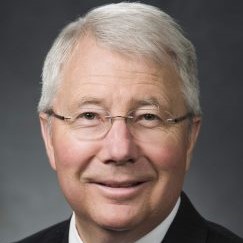ACPE SIP Research Project Begins Data Collection
 ACPE’s Spiritually Integrated Psychotherapy (SIP) Program has begun data collection in its first research project. This research is an important part of discerning the value of the ACPE SIP training and establishing its credibility in the world of psychotherapy.
ACPE’s Spiritually Integrated Psychotherapy (SIP) Program has begun data collection in its first research project. This research is an important part of discerning the value of the ACPE SIP training and establishing its credibility in the world of psychotherapy.
The project, “Evaluation of the ACPE Spiritually Integrated Psychotherapy Program,” is comprised of two parts. Part One will investigate the impact the training has on participants. Its central question is: How effective is the ACPE SIP training at enhancing the attitudes, knowledge, and skills required of psychotherapists for the delivery of sensitive and competent spiritually integrated psychotherapy? Participants in the trainings are completing an online questionnaire before beginning the training and again upon completion.
Part Two will investigate how the training impacts clinical care. Its central question is: “When psychotherapists apply the attitudes, knowledge, and skills they learn during the ACPE training program, does it enhance treatment outcomes for their clients?” Five therapists who have completed the 30-hour SIP curriculum and begun the consultation process will be recruited to participate in this portion of the project. Using a practice-based evidence (PBE) research design, Part Two will ask therapists to report on clinical issues addressed and interventions utilized in each session, while their clients report on their experience of symptoms and their overall quality of life.
ACPE has partnered with Scott Richards, Ph.D., and Bridges Psychotherapy Solutions to design this project, collect and analyze data, and publish the results. Dr. Richards is retired as professor of counseling at Brigham Young University, co-author of A Spiritual Strategy for Counseling and Psychotherapy (1997, 2005), co-editor of The Handbook of Psychotherapy and Religious Diversity (2000), and past president of Division 36 of the American Psychological Association (Society for the Psychology of Religion and Spirituality). He has directed a number of large research projects, most recently “Enhancing Practice-Based Evidence for Spiritually Integrated Psychotherapies: An Interdisciplinary Big Data Project,” which was funded by the John Templeton Foundation for $3.5 million.
Dr. Richards offered these thoughts about ACPE’s SIP Program: "Continuing education opportunities about religious and spiritual aspects of diversity and treatment for mental health practitioners have not been widely available during the past several decades. I was thrilled to learn about the ACPE SIP training program because it meets this need in such an impressive way. Nowhere else can mental health professionals receive 30 hours of education and training in basic and advanced spiritual competencies--and if they desire--20 additional hours of advanced supervision and consultation from experienced professionals to further solidify and enhance their knowledge and clinical skills. I'm grateful the ACPE SIP training opportunity is now available for mental health and pastoral professionals throughout North America."
He added, about the intentionality of the research ACPE is undertaking: "I love the fact that the leaders of ACPE are investing in research about the ACPE SIP training program. In order to succeed at making training opportunities in religious and spiritual aspects of diversity and treatment more widely available to graduate students and licensed mental health professionals, we need research evidence that such training improves the effectiveness of mental health treatment. ACPE is at the forefront of training in spiritually integrated treatment. Now, by sponsoring a research study that evaluates the effectiveness of the ACPE SIP training program, ACPE is leading the way at establishing a strong scientific foundation for training in spiritually integrated treatment."
